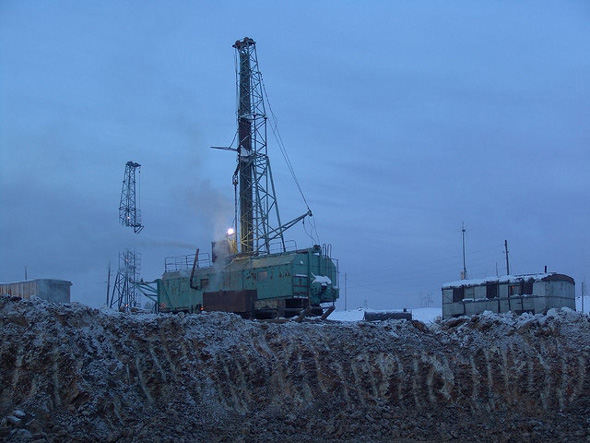Yale Environment 360 has a good interview up with Hampshire College Professor
Michael Klare about the thinking behind his recent book,
The Race for What’s Left: The Global Scramble for the World’s Last Resources. According to Klare, increased scarcity and a surging global appetite for natural resources have led us into an unprecedented period of exploitation where maintaining a supply of crucial resources means exploiting ever more remote, fragile, and dangerous regions of the globe (
Afghanistan and the
Arctic, for example).
Touching on everything from Canada’s tar sands and “fracking” in the United States, to rare earth minerals and agricultural land grabs, Klare explains the security implications of this newest resource “scramble” and his hopes for future solutions.
We’ve excerpted the first question and answer of the interview, by Diane Toomey, below, but the complete discussion is worth a read.
Yale Environment 360: You make the point that when it comes to the age-old competition for raw materials, we’re in an unprecedented age. How so?
Michael Klare: I do believe that’s the case. Humans have been struggling to gain control of vital resources since the beginning of time, but I think we’re in a new era because we’re running out of places to go. Humans have constantly moved to new areas, to new continents, when they’ve run out of things in their home territory. But there aren’t any more new continents to go to. We’re going now to the last places left on earth that haven’t been exploited: the Arctic, the deep oceans, the inner jungles in Africa, Afghanistan. There are very few places left that haven’t been fully tapped, so this is humanity’s last chance to exploit the earth, and after this there’s nowhere else to go.
Continue reading on Yale Environment 360.
Photo Credit: Drilling in Siberia, courtesy of flickr user MOBmole.

 A Publication of the Stimson Center.
A Publication of the Stimson Center.




